“The most important thing in life is knowing the most important things in life.”
—David F. Jakielo
Today’s story is contributed by Dr. Bruce H. Jackson.
My father was a self-made man. Growing up during the Depression was a great challenge and blessing for him.
His father, my grandfather (who I never met), was a blind doctor. He made house calls in exchange for eggs and fresh produce. I’m always amazed how this man’s diligence and grit rubbed off on my father.
My father told me of the days he hunted for squirrel and rabbit so they could supplement their meals. He worked before and after school. The family lived a very frugal and controlled life — as my grandfather didn’t like to have his children leave the property much or be out of his control.
After putting himself through college on a track and football scholarship, he then attended Officer’s Candidate School at Notre Dame (the class behind JFK) and became a PT boat commander — patrolling in France, Italy, Africa, Corsica and surrounding areas. He thrived in these circumstances.
After the war he began in sales, moved up the ranks, and then after 20 years became a senior executive with a major packaging company (Hoerner/Waldorf). Then through real estate, banking, start-ups, and other projects he made enough money to retire early and focus on civic duties.
In his mid 50’s he focused his life on political campaigns including State Senate, U.S. Congress, U.S. Senate, and Presidential (Nixon, Ford, Reagan, Bush, Bush). He was the Finance Chair for the Republican Party for many years.
I have some great memories with my father: attending a White House dinner with President Bush (Sr.), hearing stories of his experiences during the war, like meeting with Winston Churchill, his pet monkey, and his adventures throughout Europe.
In essence, my father succeeded at just about everything he did. He was a marvel to me as a boy. Big, tall, Hollywood looks, strong, stern, and powerful!
But… he was an unhappy man.
It seemed no amount of money, power, or accomplishment could compensate for relationships lost at home. Intimacy was scarce. We had an unstructured family with only rare moments together.
As a family, we had resources, but little bonding. It was different with Dad and me — we were as close as a father and son can be. Why? Because I worked hard to make that happen — out of love, respect, and my deep desire to make him a happy man.
In his last months of life, we spoke often about all of his worldly success, and the clear message was:
All of the money and success in the world is bull@#$# — that the real success in life was to love and to be loved.
My father, in his last days, helped me understand that while it is important to make your mark in the lives of others and the community, you can never do this and be truly happy if it costs you your family and the relationships that are most important to you. This lesson will not be lost on me or my family — whom I seek every day, to serve and to love.
We are a system and we must be fed everyday — physically, emotionally, mentally, philosophically, spiritually, and socially.
Learning together, having fun together, exploring life’s lessons together, supporting one another through our individual and collective journey, is perhaps the greatest gift we can ask for. I believe that doing family right is the fundamental test, but more importantly, the fundamental gift of life. It is our entrance exam for the life to come.
And while I have the same passions and ambitions as my father, I’m seeking to learn from both his successes as well as his admitted failures. May I succeed in this quest and find that balance that is, indeed, quite a challenge.
I thank my father for all of the lessons he taught me (both directly and indirectly) and being aware of the most important lesson of all — the importance of keeping first things first…
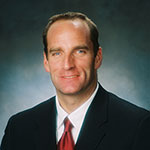
Dr. Bruce H. Jackson
Dr. Bruce H. Jackson is the CEO of Applied Human Excellence and Executive Director of the C. Charles Jackson Foundation. A scholar/practitioner in the arena of human effectiveness, Bruce seeks to advance individual, interpersonal, team, organization, and civic/community effectiveness. See his website, The Institute of Applied Human Excellence.
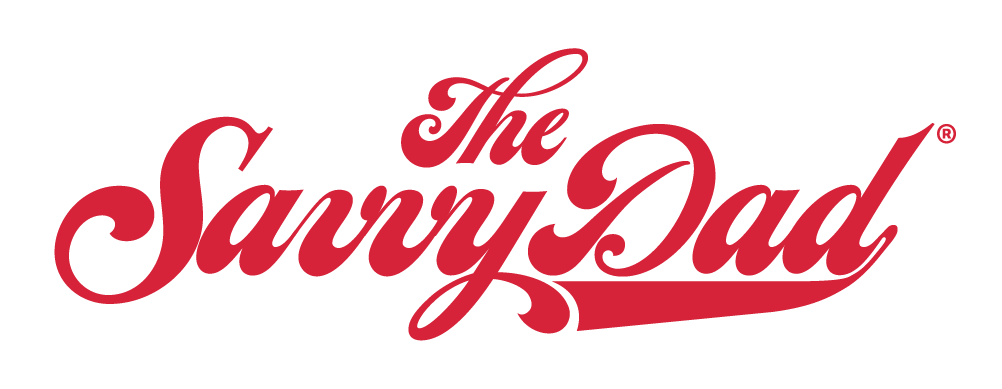








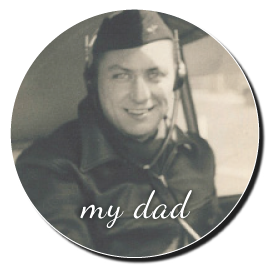
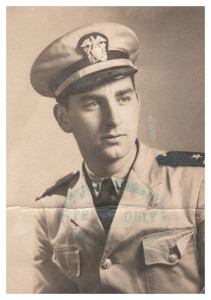
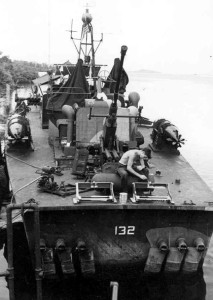
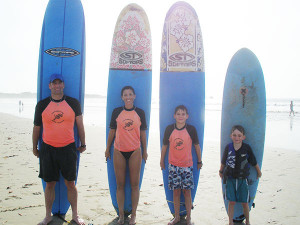
As a sailor, Bruce’s father’s PT Boat experience attracted me to this story. The story was also poignant personally, as (again drawing on a sailor’s perspective) “finding the sweet spot” is as much an art in the professional/personal balance as it is in sailing. It was wonderful to read that Bruce was able to hear the wisdom from his father before he passed… and to read about Bruce’s profession, with the inescapable conclusion that Bruce is doing something professionally that he almost certainly loves and finds rewarding.
My journey along that sailing ‘sweet spot’ has been somewhat less smooth. But with two growing boys, I keep perspective by remembering that even if I don’t get it quite right for myself, I can help my sons get it right for themselves. I just need to help them realize that, “the real success in life [is] to love and to be loved.”
Wonderful story.
Pingback: A Tribute to my Father | The Institute of Applied Human Excellence - Leadership Training
I loved your story because I, too, was very close to my own father. He passed away a week before my second child was born, when my son was two years old. It was devastating for me. But unlike your father my dad didn’t achieve wealth, but he did rise from humble beginnings. He quit school at age 16 to help on the farm, was drafted at age 21 and spent 3.5 years during WWII in France, Italy, Morocco, etc. He came home and began working in feed stores and later apprenticed as a carpenter. He went on to owning his own contracting firm, building modest houses in the 50s and 60s. And then managed a lumber yard…until he had a stroke in 1972. He pulled out of that and eventually became the tax assessor for our small city until his death. The lines outside the funeral home wound through the building and down the city street.
As a contractor, he worked six days a week, but he never lost sight of what was really important…his family. He bought a boat but he did not swim and he was terrified of falling in the water, but he wanted to watch his young family enjoy themselves. I wrote a piece about him many years after his death that was printed in the newspaper, a full page with photos. It is a memory of a story he shared with me, more precious to me than all the gifts I have ever received. I learned from him that family is most important, because consider this:
What do I want to be thinking about during my last moments on this earth? About work? About money? About successes and conquests? Or do I want to be thinking about what really matters, the love of family and friends and the relationships I built and sustained during my time here…
Thanks for sharing Bruce!
Deb